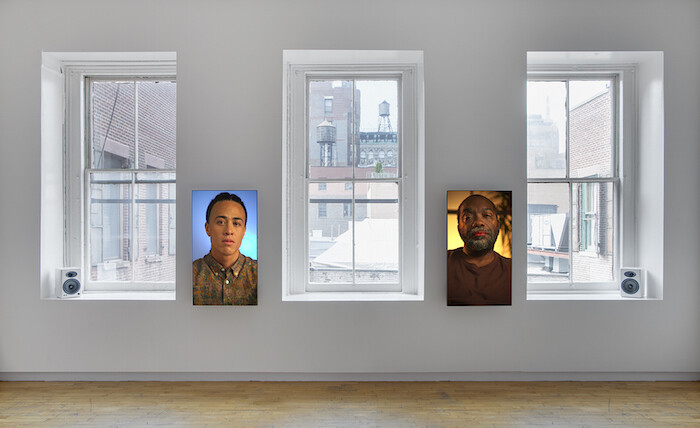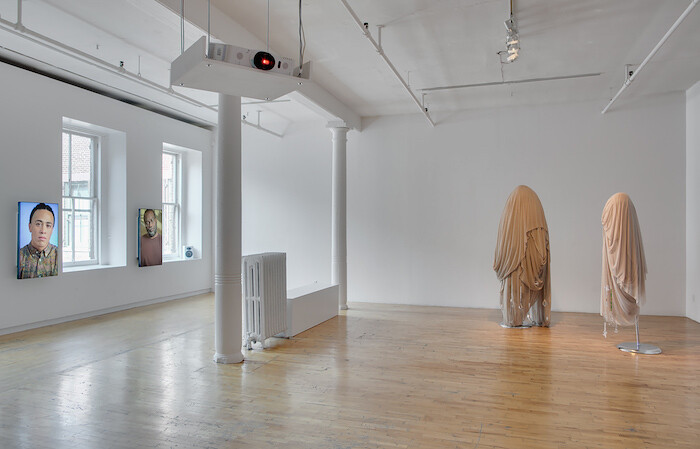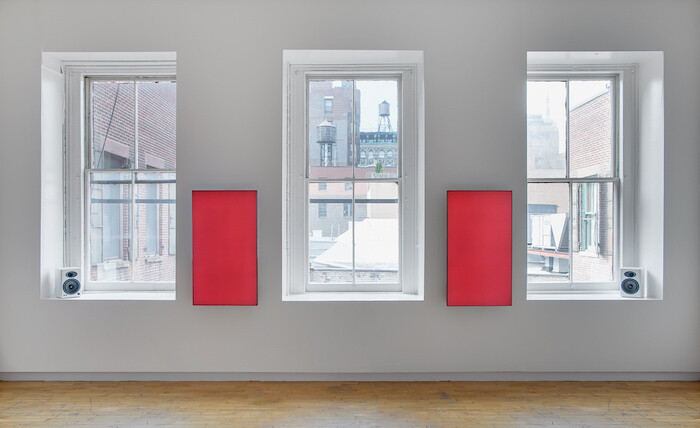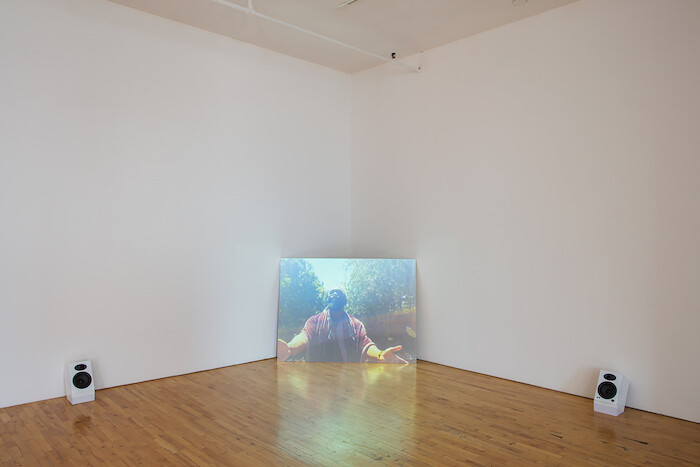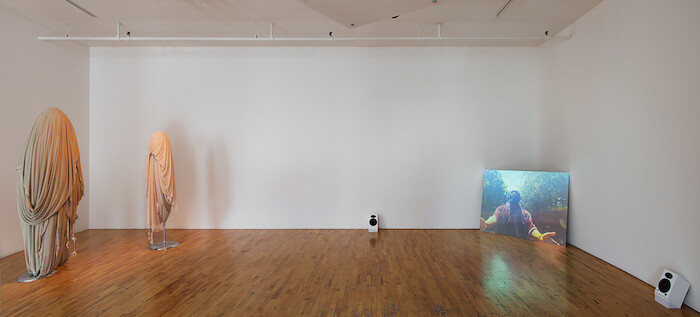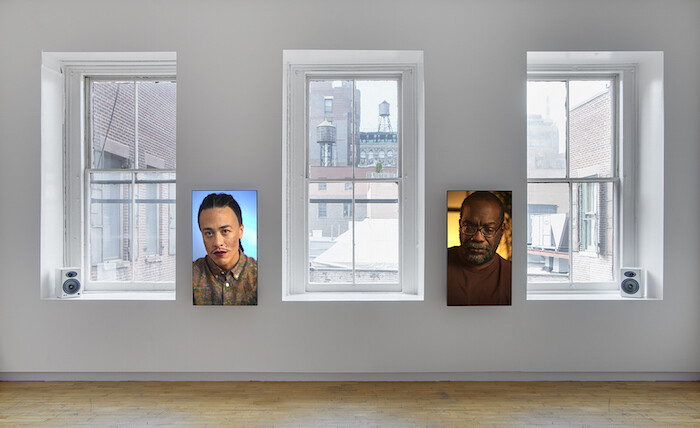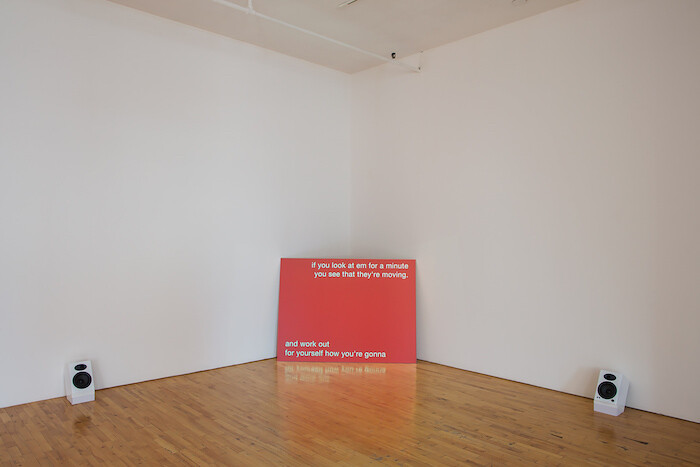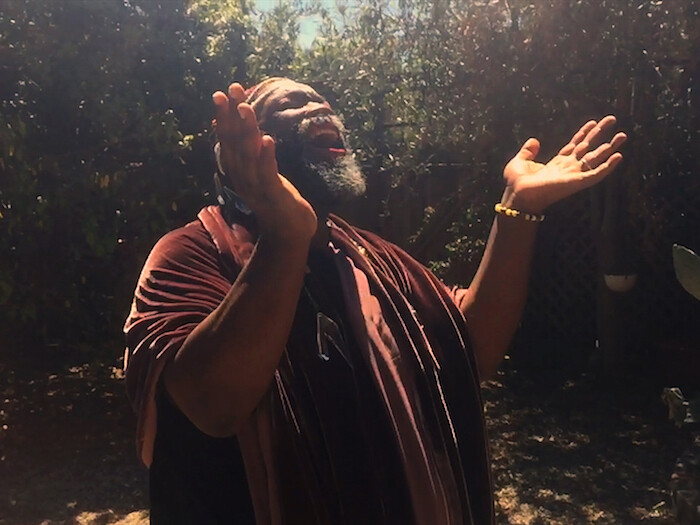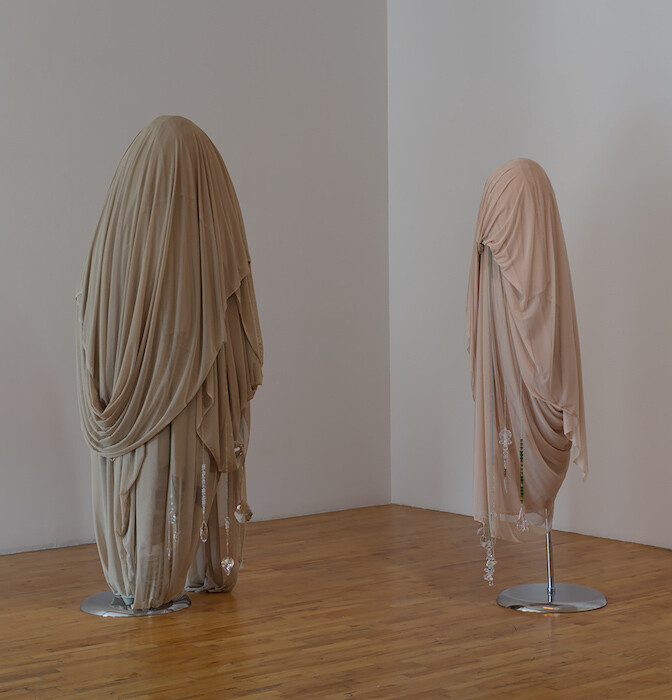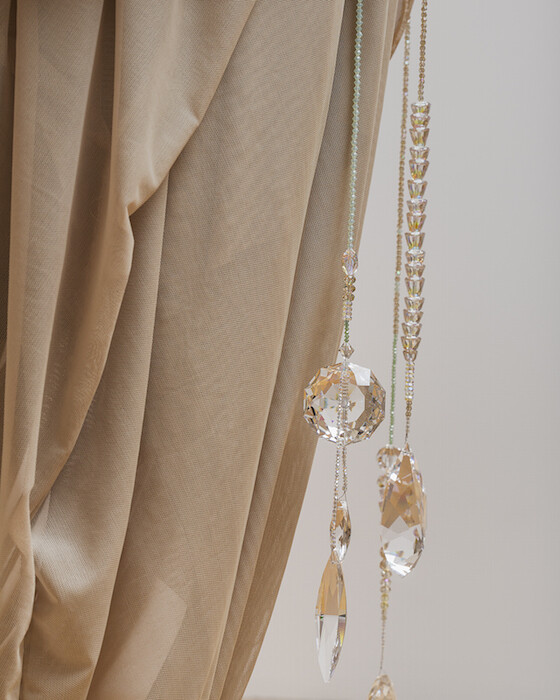Wu Tsang’s work employs the fruits of creative human exchange as both a subject and a method. Whether engaging with various facets of queer community (Wildness, 2012, and A Day in the Life of Bliss, 2014), or previously unfamiliar subjectivities (The Shape of a Right Statement, 2008, based on a speech by autism rights activist Amanda Baggs), Tsang’s films, performances, and installations make space for reliance and collaboration. Tsang’s latest solo exhibition at New York’s Clifton Benevento is the result of an exchange with Fred Moten, the poet and theorist whose explorations of representation and identity in black avant-garde culture have over the last few years brought him into the art-world fold.
The central work of this exchange, Miss Communication and Mr:Re (2014), was initiated as a long-distance communication experiment. Moten and Tsang left each other voicemail messages every day over a two-week period, never actually making contact, but often riffing off of the other’s previous message. The recording of these messages plays over separate speakers, with the two channels laid over each other, making only segments of either party’s monologue distinguishable. Gratifyingly, the transcript reads out on a video screen across the gallery. The typed text allows their two distinct modes of locution to surface, and highlights moments of iteration, departure, or thinking through trying to speak. Moten’s delivery often runs straight from stutter to poetry—his thoughts seem to crystallize instantly and almost autonomously into concepts: “it–it I dunno it, it uh… well I should—Let me put it this way: the earth cannot sustain the longevity of normative western bourgeois subjects. Right? Cause normative western bourgeois subjects use up too much shit…” Moten’s verbal brilliance seems to spill out of him almost unintendedly, in a way similar to how his academic talks slide into poetic inflections and rhythms. Tsang’s messages, in contrast, are confessional, wandering, and conversational.
As the audio and transcript play, two HD screens feature medium-close video portraits of Tsang and Moten; in counterpoint, two underarticulated mannequin-like sculptures stand nearby, in mute conversation with the videos. The video portraits’ framing remains the same for most of its 17 minutes, but cuts switch to minor changes in demeanor and position: a shifting of weight, a look in the eye (is Tsang crying?), a sudden smear of lipstick on Moten and a thinly drawn mustache and beauty mark on Tsang. Moten seems willing to try out whatever Tsang, as director, suggests, which makes for simultaneously tender and awkward viewing.
Even more so in a second video which, after Miss Communication and Mr:Re ends, plays on the same screen as the transcript (while the HD portraits across the room go to pink). Girl Talk (2015) features Moten dancing (sort of) in slow motion, with a Josiah Wise rendition of the jazz standard playing over the performance. In light drag—a studded cloak hanging loosely over his body—Moten spins in a sunny garden. The silliness and amateur nature of the performance at times renders it less an exploration of identity shifting than observation of the collaboration. But that’s also partly the point. The power dynamics are in flux throughout, as the dominant discipline of each performer—text and speech for Moten, visual and physical communication for Tsang—takes alternate precedence. Each party has their moments of vulnerability and domination, yet nobody gets hurt. And neither is really showing off their goods in full—neither is in their most polished, or most demonstrative form. This becomes the core sentiment of the exhibition: exchange and play and allowance leading to what comes. Even in its clear moments, even with its polished video and spare arrangement, there’s a shagginess to it.
At the same time, the larger trapping of the voicemail message, that mostly abandoned form, leaves the project feeling somewhat over-determined in its miscommunication and mystery. In one of her messages, Tsang muses, “I kind of miss… dialing… the anticipation… there’s a moment of pause and decision-making, with each number that you press. A question.” The nostalgic baggage of the voicemail message, or the missed call, is telegraphed here as a structure that produces sentiment. Tsang’s very present aesthetic combines with this forced anachronism to leave a doubly melancholy afterglow.
